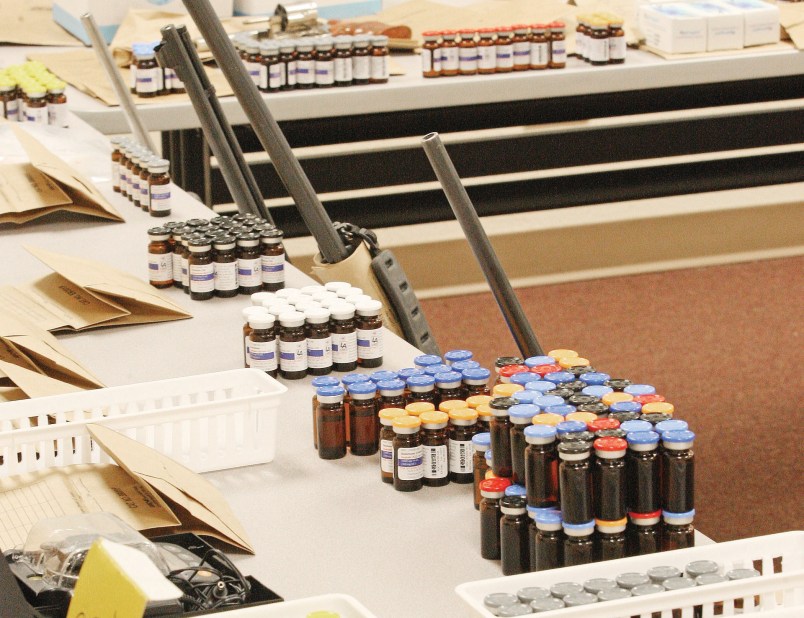CHICAGO (AP) — Gay and bisexual teen boys use illicit steroids at a rate almost six times higher than do straight kids, a “dramatic disparity” that points up a need to reach out to this group, researchers say.
Reasons for the differences are unclear. The study authors said it’s possible gay and bi boys feel more pressure to achieve a bulked-up “ideal” male physique, or that they think muscle-building steroids will help them fend off bullies.
Overall, 21 percent of gay or bisexual boys said they had ever used steroids, versus 4 percent of straight boys. The difference was similar among those who reported moderate use — taking steroid pills or injections up to 40 times: 8 percent of gay or bi teens reported that amount, versus less than 2 percent of straight boys. The heaviest use — 40 or more times — was reported by 4 percent of gays or bi boys, compared with less than 1 percent of straight teens.
The study is billed as the first to examine the problem; previous research has found similar disparities for other substance abuse.
“It’s a bit sad that we saw such a large health disparity,” especially among the most frequent steroid users, said co-author Aaron Blashill, a psychologist and scientist with the Fenway Institute, the research arm of a Boston health center that treats gays and lesbians.
“Given the dramatic disparity … it would seem that this is a population in which greater attention is needed,” the authors said.
Their research was released Monday in the journal Pediatrics.
The nationally representative study is an analysis of government surveys from 2005 and 2007. It involved 17,250 teen boys aged 16 on average; almost 4 percent — 635 boys — were gay or bisexual. Blashill said it’s likely more recent data would show the disparities persist.
Dr. Rob Garofalo, adolescent medicine chief at Lurie Children’s Hospital in Chicago, said the differences aren’t surprising, since it is known that gay youth often have “body image issues.” But he said, “It is still shocking. These are dramatically high rates.”
The Food and Drug Administration issued a consumer update in November warning that teens and steroids are “a dangerous combo,” citing government data showing that about 5 percent of high school boys and 2 percent of high school girls use steroids — more than a half-million kids.
Steroids include synthetic versions of the male hormone testosterone. Users take them to promote muscle growth, strength and endurance. Side effects can include heart and liver problems, high blood pressure, acne and aggressive behavior. With their still-maturing bodies, teens face a heightened risk for problems that may be permanent, the FDA update.
Steroids are legally available only by prescription. There are few FDA-approved uses, including replacement of hormones in men who have unusually low levels.
Potential signs of abuse include mood swings, speedy muscle growth and even breast development in boys.
Garofalo said some of his gay and bi patients have admitted using steroids. Those patients sometimes have acne, high blood pressure, anxiety, or aggression related to steroid use, but those symptoms usually go away when the drug use stops, he said.
Kids are often less open about using steroids than about drinking or smoking marijuana, but the study helps raise awareness and the results suggest it’s a topic physicians should be raising with their patients, especially gay and bi kids, Garofalo said.
___
Online:
Pediatrics: http://www.pediatrics.org
___
AP Medical Writer Lindsey Tanner can be reached at http://www.twitter.com/LindseyTanner
Copyright 2014 The Associated Press. All rights reserved. This material may not be published, broadcast, rewritten or redistributed.






